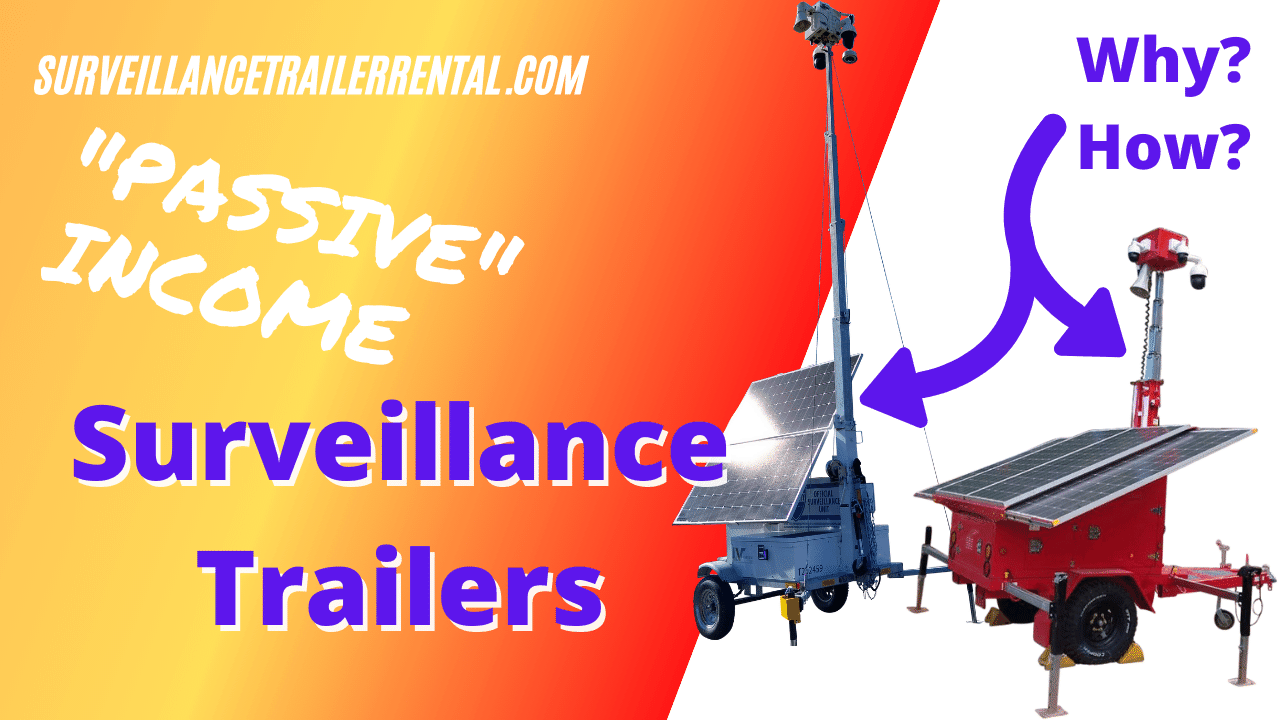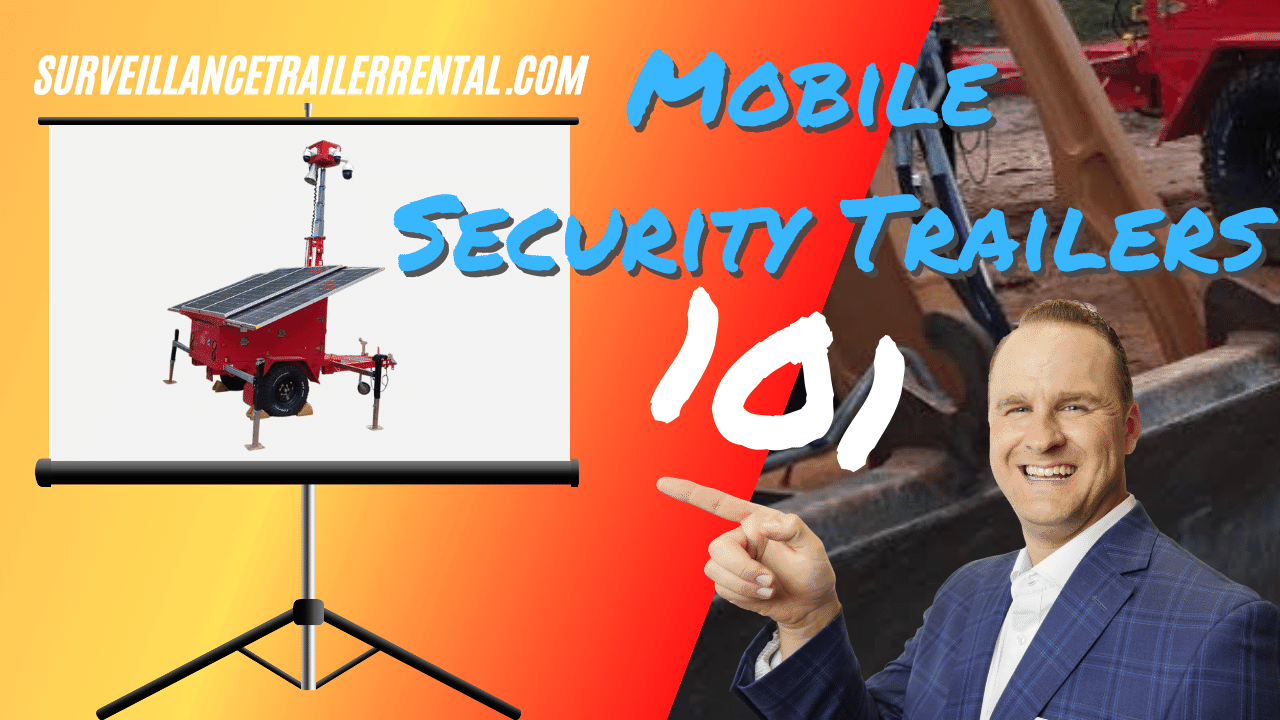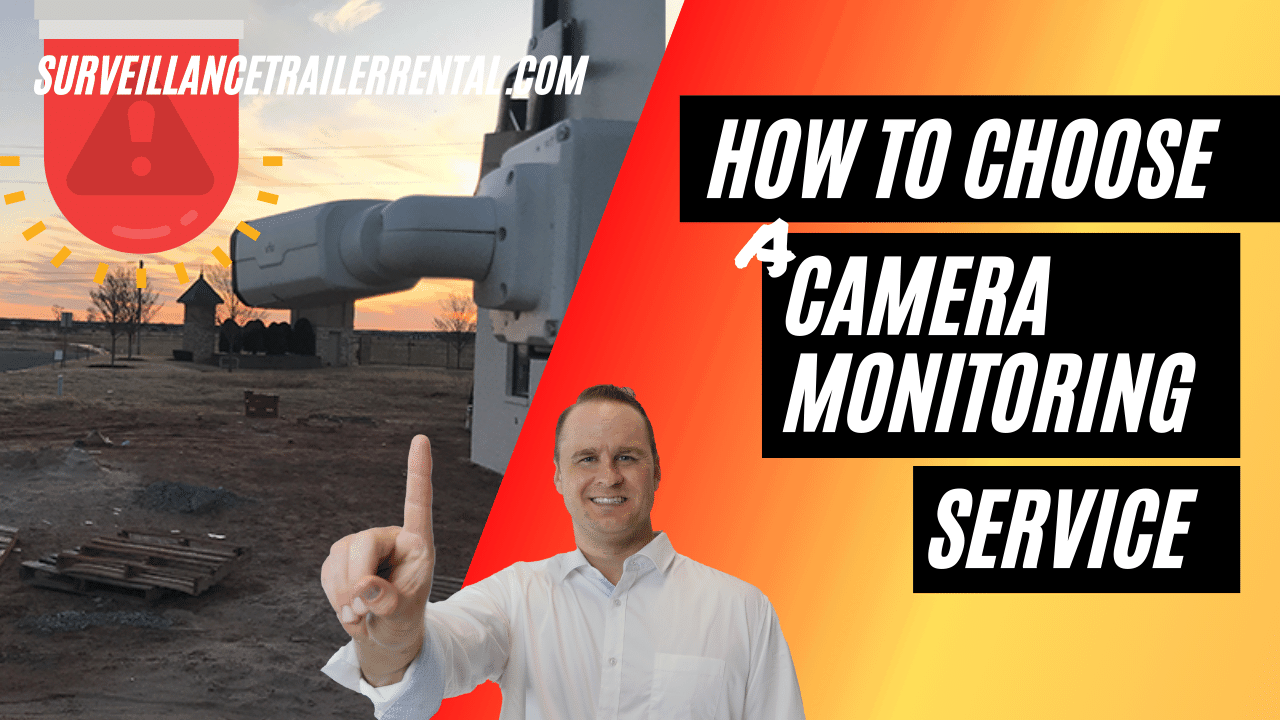Starting an Alarm Company: Beginner's Guide

Helping young entrepreneurs with starting an alarm company is something I’m super passionate about and this article will help you quickly get started and be profitable.
I started an alarm company in 2015 because when I reached out to a local alarm company for some installation help, they told me they wouldn’t help with the installation unless I subscribed to their monitoring service. I even offered a higher rate for labor, but was still denied. This seemed pretty stupid to me, so I started researching the industry in order to determine profit margins for alarm monitoring.
My research led to me to starting my own alarm company and operating it for about 3 years before discovering the surveillance trailer rental business and selling my alarm business.
I didn’t have a mentor or a manual to help me avoid pitfalls and streamline my path to profitability.
Here’s the guide I wish I had when I started. Please understand that this guide won’t teach you how to be successful in business long-term. You have to earn that yourself.
[mks_pullquote align=”center” width=”600″ size=”24″ bg_color=”#000000″ txt_color=”#ffffff”]In this guide you will learn what to prioritize and focus on right now in order to get your first paying customers and be profitable.[/mks_pullquote] [lwptoc]
Is this a profitable business model?
This is the only question you truly need an answer to before you go any further and the short answer is “yes.” We’ll talk about operating expenses and revenue potential later. For now, just knowing that this business model is proven, has been in play for a long time, and that you can scale it over time. That’s really all you need to know to move forward.
Now, profitability comes in degrees. That means that there are variables that will ultimately determine whether you have 5% profit margins or 60% profit margins. That’s not the problem you need to solve right now, though.
Earning Potential for an Alarm Company
| Product/Service | Gross Revenue |
| Alarm panel + basic sensors | $800 + $45/month |
| Video Surveillance (4-camera) | $1,200-2,000 + (Video Verification/Cloud Storage)/month |
| Video Surveillance Trailer | $1,000-4,000/month |
| Managed Access Control (4-door) | $2,000-4,000 + $20-40/door/month -or- $2-4/user/month |
Example products and services with approximate deal values
Bottom-Line…
You’re tired of working for someone else’s left-overs, you like the industry, and other people are making a living doing it. So let’s move forward.
What will you sell?
Remember, you get paid to solve peoples’ problems.
When you’re getting started, it’s important to make sure you have a general idea of the problem you’re going to solve for people and what your solution will entail.
For example, you need to pick home security or commercial security and then choose either alarm systems or video surveillance but not both.
You can add things to your service offering later but not while you’re getting off the ground. Lack of focus will kill your business before it starts.
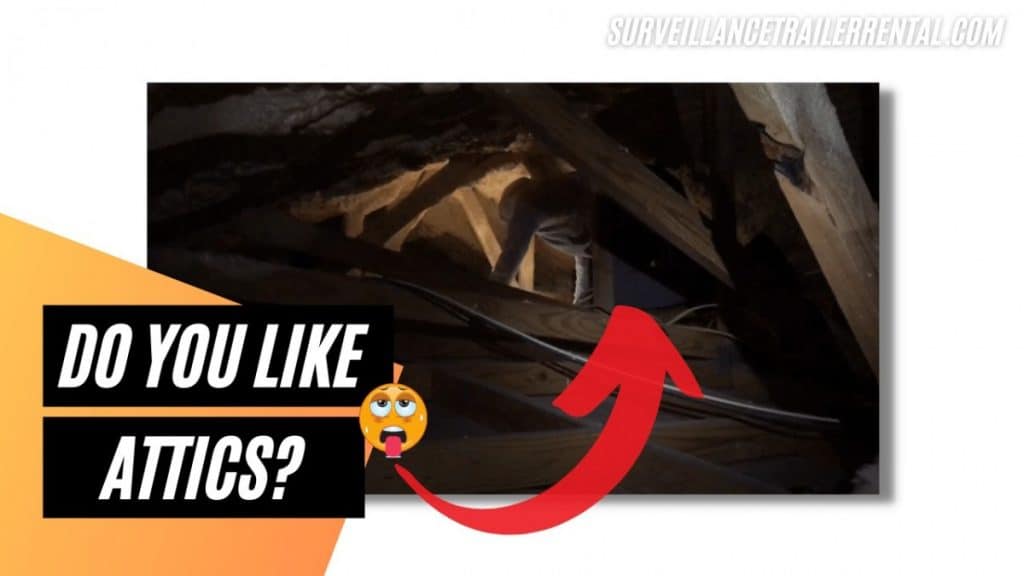
Having trouble picking just one thing? Don’t stress over it. Just think about some of the things below and remember you can always change things up later.
What are you good at?
- Video surveillance
- 2Gig alarm systems
- Networking
- Fire Alarms
Make a decision – Pick the general offering you think you want to sell. This is about a 10-15 minute exercise, so don’t over analyze it.
Just Get Your Alarm Business Started
Guess what we’re not gonna do – We’re not going to start by analyzing the entire industry trying to understand market share and opportunity by breaking down what some analyst says is a $30 Billion+ market. Is knowing that going to translate into money in your bank tomorrow? The answer is “No.”
If you want to make money starting an alarm company, or any business, you have to break out of “analysis” mode and start taking action immediately. You need to shift your mindset from “what if I fail” to “let’s see if this works.”

And you have to be okay with it not working the first time, or the 10th time.
Unless you’re designing a new security product the world has never seen before, don’t waste your time with the ridiculous market analysis. You’ll get all the information you need from talking to people in your market, which we’ll discuss in the next section.
Start with Sales
Why would I tell you to start with sales when you don’t even have a license or an account with a distributor? Is that even legal? Stop yourself. If you’re thinking this way already, you’re operating out of fear and reverting to analysis mode.
Starting with sales is critical because:
- It actually reduces your financial risk.
- It’s usually the hardest part of the business.
- Quick wins defeat your limiting beliefs.
You need to go out in the wild and talk to people who could eventually be your customers. And when you talk to them, what are you gonna say?
Example Prospecting Script
“Hey I’m thinking about starting an alarm company because I’ve been working as a technician in this industry for 5 years and I think I could do better for customers. If I started this up in the next couple months and could offer you a competitive deal, would you think about working with me?”
So let me ask you a question. If you got 10 people to say, “Yeah, I’d switch to your company”, how quickly do you think you could get licensed and get them into a monitoring contract?
When you’re getting started, this type of prospecting is best done in person. You need to build a list of 20 people and go talk to them. If you’re targeting businesses, you can make your list and walk into the business and ask for the owner. You should shoot for people you are somehow connected to socially but stay away from family and close friends.
Family and close friends tend to either tell you what you want to hear or instantly become experts in small business operations even though they’ve never attempted to do it themselves. I don’t mean to sound cynical, but if you want to have your ambitions totally deflated, then go ask your closest family members or spouse for startup advice.
Neighbors are okay, but you should be careful because once they know you as the “alarm guy” you’ll find yourself working for free because it’s hard to find a balance between “alarm guy” and “nice guy.”
You’ve got your list and it’s time to start talking to people. Be relentless and don’t stop until you’ve had a conversation with all 20. This could take you a couple of weeks and that’s fine. The information you’re collecting is super valuable to the success of your company.
Remember, you aren’t trying to sell them on the spot! That might be considered illegal, depending on your states’ laws.
You simply want them to respond with something non-committal like, “Yeah I’d consider that…if the price makes sense.”
That’s good enough! From that point, you can let them know you’ll be in touch, take some notes, and move on to the next person on your list.
Once you get 10 people who gave you a positive response, it’s time to move forward.
Business Communication
Recap
- Well, you’ve done the following:
- Decided you want to start your own alarm company
- Squared away your general offering
- Built a list of target prospects
- Talked to at least 20 people about your new offering
- Got positive responses from at least 10 people
Congratulations! You just completed “market analysis” but instead of being left with nothing, you now have at least 10 qualified leads who are likely to pay you as soon as you’re ready to solve their problem.
Now, it’s time to build the MVP (Minimum Viable Product) you’re going to sell them. There’s some boring stuff you’ll have to take care of before you can go back to your leads and ask for their business.
Next Steps
- Setup Business E-mail
- Setup Business Phone Number
- Legal Stuff
- Get Insurance and Bonds (if applicable)
- Get Licensed (if applicable)
- Establish Accounts with Distributors
Setup a Business Email Account
You may be tempted to just use your personal email account, but I advise you to fight that temptation. You don’t need a website, logo, or business cards at this stage, but you do need a legitimate business email address.
When you communicate with prospects and customers, they need to see that you have some skin-in-the-game and feel reassured that you aren’t gonna disappear with their money. On the other hand, you are just getting started and need to send that message without investing much money into it. It’s a balancing act.
Alarm company business email account 4-step setup process:
- Pick a name for your company
- Register the domain
- Setup the email service
- Create a professional signature block
Pick a name for your alarm company
This step is pretty self-explanatory and you’ve probably already given it some thought. However, here are some tips for picking your company’s name.
First, keep it short. You need the name to be easily remembered, easy to type when your customers send you an email, and shorter domain names tend to rank better for Search Engine Optimization (SEO).
Second, check for a .com domain. Forget about .net, .org, .co, etc… Pick a .com domain that matches your company’s name. Why? Lot’s of reasons including: perceived legitimacy, easier to communicate over the phone, SEO, and more.
You can check for a .com domain here.
Register the domain
Once you have picked a name for your company and checked that the .com domain is available, it’s time to buy that domain.
It will cost you like $8-9 for the year to register the domain. We recommend this company because they have good support, good prices, and their platform is easy for beginners to navigate.
Register your .com domain here.
The next steps will assume you followed our recommendation.
Setup the email service
Here are two ways to setup the business email service for your company:
- (Cheapest) Use the domain registrar’s email provider
- (Best) Use Gmail
If you stick with the email service offered by the domain registrar, you can usually get setup for less than $1/month. You don’t get other features that might come with a more expensive service, but it gets you up and running. Click here to get 2 months of business email free.
The second, more expensive, option is to subscribe to GSuite so you can use Gmail for business. For a few dollars more per month, you’ll gain access to Google Drive cloud storage, Google Sheets, Google Docs, and other tools that you can use in your business. Ultimately, this will make sense but whether you add the extra expense now is totally up to you. You can see pricing and get started with Gmail for Business here.
Create a professional signature block
This doesn’t have to be anything fancy, but little details like a sharp signature block send a subtle message of stability to prospects. It’s just one more cheap way to help build trust with potential customers as you’re communicating with them. It’s so easy to setup an email signature block with your picture or your company’s logo, everyone should do it.
There are examples of clean-looking signature blocks all over the internet and even some free tools that you can use to generate your own. Just be careful about using those free tools because they often embed code and host images on their servers which could lead to your emails being marked as spam.
Setup a Business Phone Number
The main reason for setting up a dedicated phone number for your alarm business is credibility.
When I was starting my first company, I tried using my personal cell phone. I was always hesitant to answer unknown numbers because I was concerned about debt collectors, spam callers, and telemarketers wasting my time.

Because I had no idea if the person calling was a prospect, I would answer the phone as if anyone was calling and say, “Hello?”
When a potential customer is calling you to evaluate whether they should do business with you, they expect a higher level of professionalism. You should always answer the phone with a business greeting and if you can’t answer the phone, you should have an answering service (more expensive) or a professional business voicemail (cheapest).
The business phone piece of your operation becomes more and more critical as you start making money and investing into advertising.
Here’s our recommended approach to scaling your phone system with your business:
[Level 1] Start with simply forwarding a second line to your personal phone
For this, Google Voice is fine. Simply tie your personal phone to Voice and install the app.
There are limitations but when you’re just getting started, this should be expected.
[Level 2] Move to a platform that has call tracking and a good IVR
Once you start making some money and your alarm business is profitable, you really need to move to a more advanced platform that helps you attribute leads back to specific advertising campaigns.
The method used to do this is call tracking and it helps you understand and manage your advertising expenses.
Additionally, a great phone system will work with your CRM seamlessly.
This is all more advanced stuff, but I’m bringing it up now so you don’t purchase something that your business quickly outgrows. The goal is to setup the tools and not have to think about them again because they just work.
So here’s the phone platform we recommend as you start generating some income. Phone system with call tracking
[Level 3] Invest in a virtual receptionist trained to capture leads
There have traditionally been just two sides to answering services: inbound call handling and outbound dialing.
A virtual receptionist service is perfect for growing field services businesses because, well, you’re gonna be in the field a lot.
There are some amazing virtual receptionist services out there that will handle all of the following and really help you scale your new business while you focus on delivery:
- Live answering of inbound calls
- Outbound calling to follow-up with leads or invoices
- Taking payments over the phone through your credit card processor
- Handling text messages
This is an investment you should consider once you’ve established a consistent revenue stream and your alarm company has some RMR coming in.
Legal Stuff (may take ~5 business days)
Now that you have some likely paying customers lined up, it makes sense to form the legal entity under which your business will operate.
You could spend hours researching and trying to decide whether to form an LLC vs an S Corp etc..or you could just realize that your immediate need is simply to create a legal barrier between your personal life and your business in the event something goes horribly wrong.
You don’t need to pull your hair out trying to choose the best structure for your company right now. That’s an optimization function and as much as lawyers will try to convince you to pay them thousands of dollars before you process your first customer’s payment in order to build bylaws and operating agreements from scratch, it’s just not needed at this time.
We recommend just starting with a Single Member LLC for now and then hiring an accountant or tax attorney who has alarm or service company expertise in the future to help you optimize and restructure if necessary.
Nobody cares about you and your company right now. It’s not worth anything. Focus on making money first and then iron things out on the legal and tax side later when you can afford good counsel.
Here are the steps you need to take to get your alarm business established so you can start earning money:
- Apply for your Employer Identification Number (EIN)
- Hire a Registered Agent to file your LLC and maintain everything for you
- Use LegalZoom to have an Alarm Monitoring Agreement drafted (you can send them an example from a competitor)
- Setup e-signature software to get contracts signed by customers quickly – this one is awesome!
From this point, you should have everything you need to move on with the next steps! Everything coming up depends on your having your LLC formed and Articles of Incorporation in hand.
Get Insurance and Bonds (could take 1-2 weeks)
Depending on your state’s licensing requirements, you may have to get bonded and insured before you can submit your alarm/low-voltage license application.
To determine whether this is required, you’ll just have to go to your state’s Secretary of State website or Department of Labor site. Don’t trust any sources other than those with a .gov domain where you are actually going to be submitting your application and payment.
Once you get the requirements, we recommend SuretyBonds.com for your bond because they’re fast and cheap. I’ve had same day turnaround with these guys!
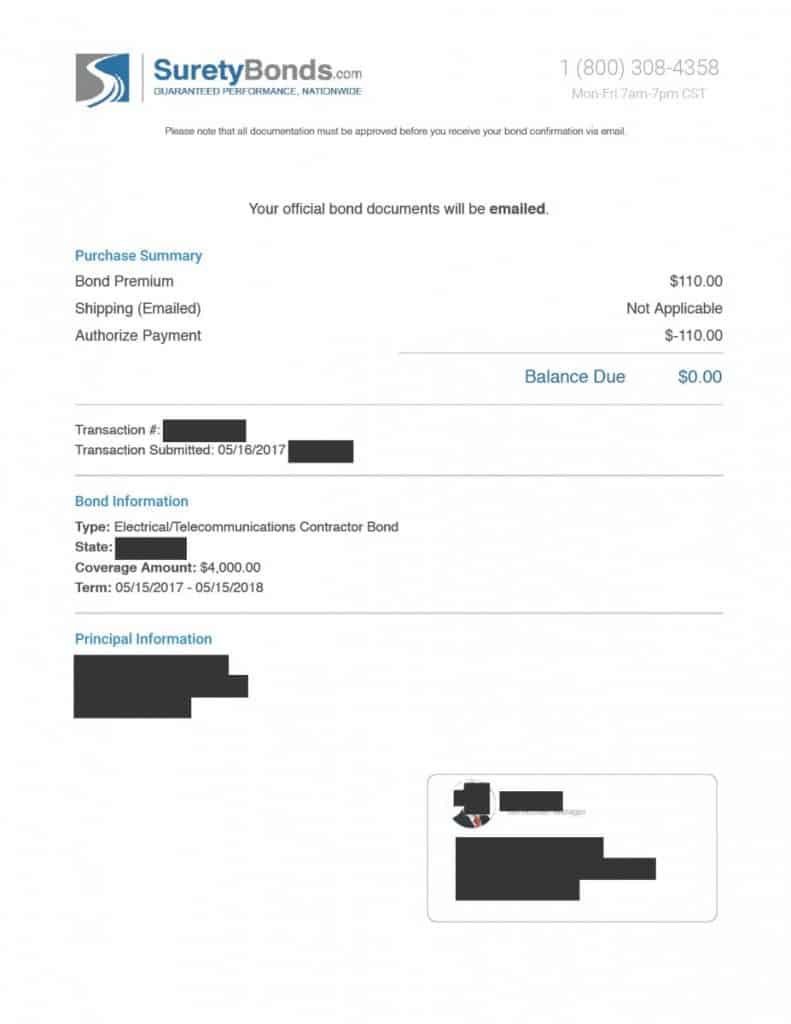
As with surety bonds, you’ll need to check with your state to make sure you meet commercial insurance requirements. Depending on your state and your unique situation within your new company, you may also need Workers Compensation.
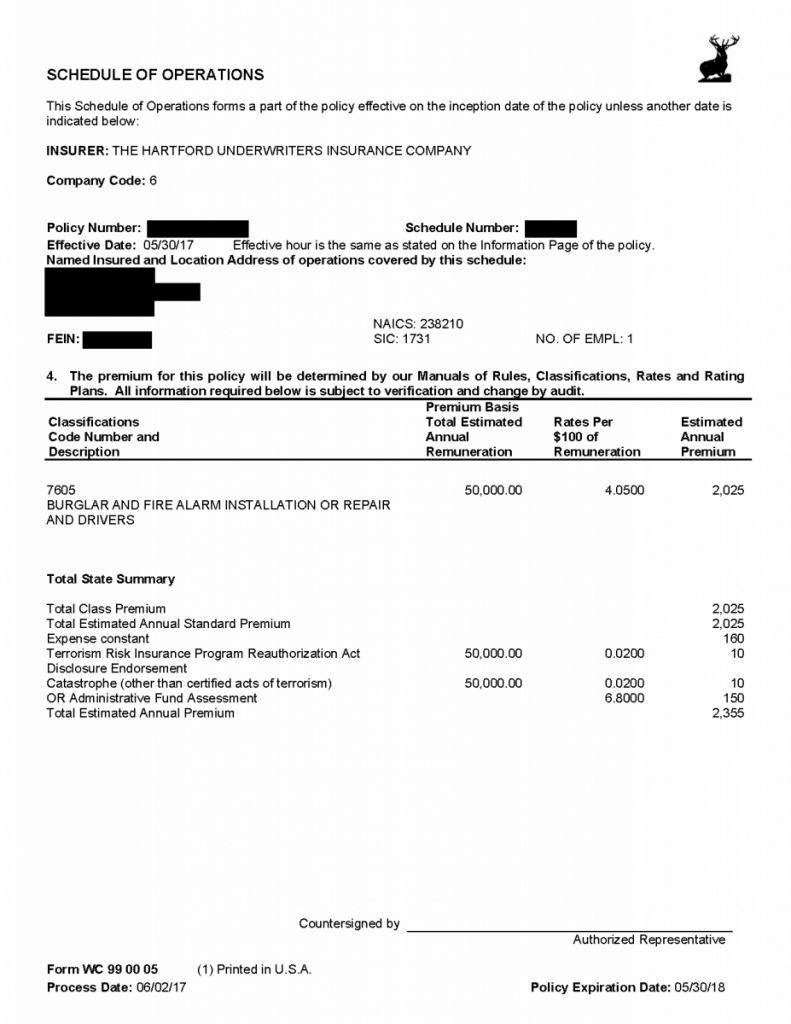
CoverWallet and CoverHound are both great resources to check for commercial insurance quotes. These companies will collect pricing from multiple different insurance providers and show you all the pricing and terms in one place so you can make a decision quickly. It could take several days or even a couple of weeks for the insurance provider to approve and write your policy.
Here’s one of my first insurance quotes:
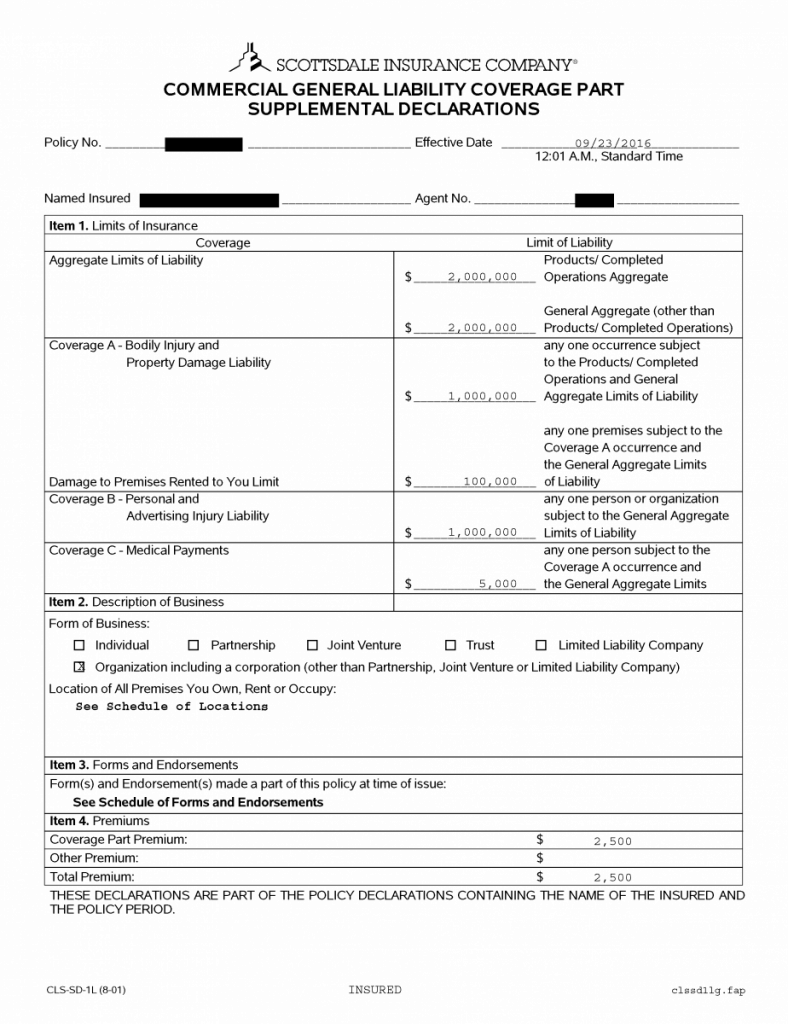
Get Licensed (lead time wildly varies by state)
When I was operating a traditional alarm company, I was licensed in 3 states and experienced lead times on licensing ranging from same day to over 1 month. It depends on the state’s and local governments’ requirements and their capacity to process applications.
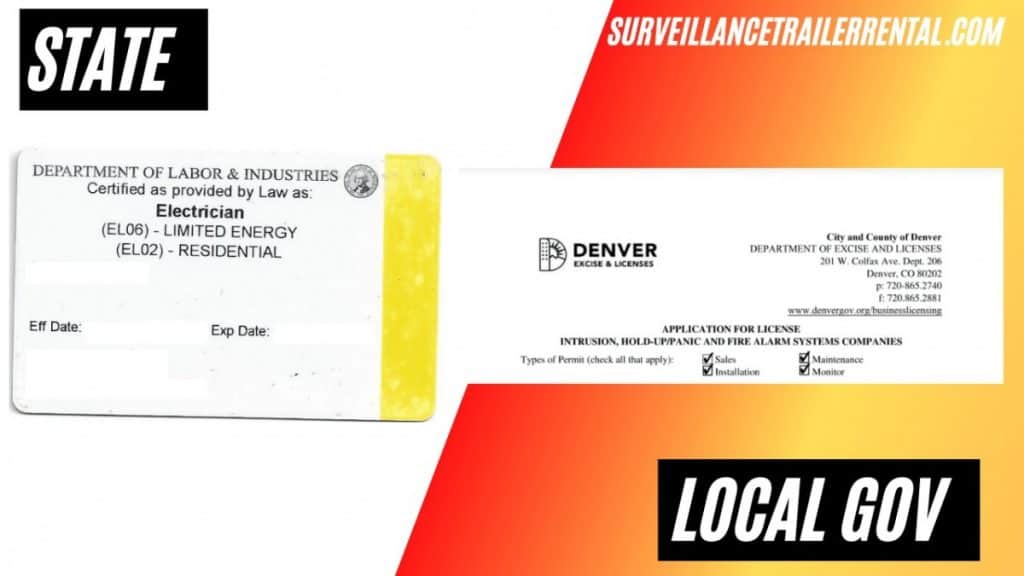
For example, some states will accept licenses and credentials from other states. Other states will require you to take their “special” exams, which we all know adds zero safety value to the consumer and is a straight money-grab by the state.
Nevertheless, you’ll need to dedicate time to studying for the exam(s) and packaging together all the required documents for submission. There’s also gonna be a fee and it’s usually at least $200. Some states charge way more.
If it’s just you (no business partner), you will have to meet certain experience requirements that are time-based in order to be able to get a company license as the “Manager.”
If you are starting with zero experience, like I did, it’s not game over yet. You just have to be an entrepreneur and solve the problem. Some states will allow you to maintain ownership of the company and hire a “Manager” or “Administrator” in order to secure a license and be compliant.
[mks_pullquote align=”left” width=”300″ size=”24″ bg_color=”#000000″ txt_color=”#ffffff”]You have to think outside-the-box and see roadblocks as temporary problems to be solved.[/mks_pullquote]
I searched the state’s records for individuals who had the license and experience I needed and then reached out to them with an offer until I had the help I needed. Be careful about how you hire people if you go down this path. You absolutely do not want to violate labor laws in this process so make sure you understand the difference between W2 employees and 1099 contractors and comply with your state laws.
Look, this might be a super simple step for some of you and it might be one of the most difficult for others. For me, I was operating in states thousands of miles from my home and I had no interest in jumping through all the licensing and exam requirements or waiting years to build the experience required. I found another way. You have to think outside the box if you’re committed to making your business successful.
Regulation was one of the big reasons I changed my business model and stopped offering traditional alarm services.
Establish a Business Bank Account (same day)
You’ll need to take your Articles of Incorporation, Operating Agreement (if applicable), and EIN to your bank of choice and meet with a banker to open a business account. Look for a bank that lets you open multiple checking accounts under the same business so you can allocate funds to accounts that serve different purposes. For example, an account for taxes, another for revenue, one for expenses, one for payroll, etc…
To understand why this is important, read or listen to Profit First by Mike Michalowicz.
Establish Accounts with Distributors
Before you can produce a quote or sell anything, you have to have a source to purchase them from.
It’s pretty important to stay away from consumer-level retail stores when purchasing equipment because marketplaces like Amazon and eBay are filled with repackaged, outdated hardware being resold by merchants who aren’t approved by the manufacturer as resellers.
The value a good alarm/security distributor brings to your business comes in the following ways:
- Better margins
- Specialized training
- Warranty help
- Project scoping
- Manufacturer sales rep connections
- Net terms
Here are some examples of alarm distributors:
We’ve held accounts with all of them in the past and they each have their pros and cons.
If you buy directly from a consumer-level marketplace, you can’t make money on reselling the product. The typical residential customer is always going to price-check your quotes.
Good distributors coordinate regular training events with manufacturers and sometimes the resulting completion of this training will lead to deeper reseller discounts on their products.

When something breaks or isn’t working correctly, having a partnership with a manufacturer-approved distributor means you can get your customer a replacement part more quickly because the distributor will usually stock the item. They’ll swap the broken unit for the new one and RMA the old one under warranty. Instead of making your customer wait, they can get the new component installed sooner.
This speed-to-service is enabled by a good distributor and makes everyone look better in the eyes of the customer from the manufacturer to your company.
Sometimes, you’ll just get stuck or you won’t really know the best way to design a system. It pays to have support from the distributor because you can bounce ideas off of their team and if they don’t have an answer, they will contact the manufacturer on your behalf and help you solve the problem.
Lastly, when you establish an account with a distributor, there will be a couple of ways you can transact.
The first is through a cash account. With this option, you prepay for all purchases you make from the distributor. This is the type of account you will likely need to start with on your application.
The reason you’ll want to start with a cash account is because your company is brand new and you have no established trade lines and nothing for the distributor can use to decrease their risk. Cash accounts are less risky for distributors and your application is more likely to be approved with this option.
The second option is establishing net terms with your distributor. This is essentially business credit that the distributor extends to the dealer for a predetermined period of time. For example, “Net 30” means a dealer can purchase products from the distributor and payment is due 30 days from the purchase date.
The reason this can be a good tool for alarm companies is because when your deal sizes grow, and maybe you start doing more commercial work, your customers are going to sometimes dictate payment terms. Nobody likes to have customers dictate payment terms and you can always walk away from a job, but in a competitive environment, you might need the flexibility net terms offer in order to win a deal.
The next benefit of net terms is that they help alarm companies stay cash flow positive through larger projects. Instead of having to float all the costs of goods sold over a 90 day period while you wait for the customer to pay, you can align the customer’s terms with those of your distributor so you can operate in a positive state.
You can see where the risk to the distributor lies in this model, right? So, understand that as you apply for accounts with these guys.
Establish Payment Options for Customers
Don’t let the simplest thing create a bad impression with your first customers. It’s not 100% necessary to accept credit cards but consider these points:
- People expect transactions to be fast and easy
- Many people don’t carry cash or write checks
- How quickly do you need the deposit for a new job?

You should expect to pay processing fees for credit card and ACH transactions.
Typical credit card fees are 2.9% of the invoiced amount plus $0.30 per transaction. ACH transaction fees are usually 1% of the invoiced amount.
Don’t be afraid to pass the transaction fees along to your customers. Just give them options when you present the invoice so they don’t feel nickeled-and-dimed.
We like FreshBooks for invoicing and accounting because their platform is easy to use and they provide multiple different payment options such as their own FreshBooks Payments, Stripe, and PayPal. As the merchant, you get to choose which one you apply for and use to process your customers’ payments.
Depending on your credit history and other factors, your application may be denied. If this happens, we recommend contacting this company about a merchant account. We’ve seen people get accepted here after being denied by Stripe and others.
Close the Deal and Deliver
Recap
- You’ve setup all your legal stuff
- You’re licensed (if applicable)
- You have a place where you can buy the stuff you’re gonna sell
- Your invoicing system is ready to go
Next Steps
- Reach back out to the people you talked to and ask for their business
- Send them an estimate
- Close the deal and take partial (or full) payment
- Order supplies from your distributor
- Complete the project
- Analyze
- Repeat
Follow Up With Your Qualified Leads
This should be a pretty natural phone call.
“Hey Mike! Remember a few weeks ago I was talking about starting my own alarm company? Well, after talking to you, I talked to about 20 other people who were also interested in switching to my company once I opened up so I registered my new company and got all the licensing in place! You wanna see what it would be like to work together?”

Sort of a soft open. You don’t want to make the person feel like they signed some kind of blood contract with you several weeks ago and now you’re coming to collect.
Your lead’s reaction will determine how things go next and you have to be confident and smile no matter what.
If he seems wishy-washy, just say something like, “Hey man if the timing doesn’t work we can always talk later. I’m just excited about getting started and wanted to let you know my business is open. We’re licensed, bonded, and insured and even though I’ve been doing this for a long time, I want my first customers to feel reassured so I’m offering the first 3-months with no contract.”
If he responds positively, just move forward with a natural conversation about what he wants and get what you need to go home and build a quote for him.
Let your lead know when to expect the quote and don’t miss that deadline!
Send a Quote, Invoice, and Contract
Jump into Freshbooks or Google Docs and build that quote. Keep it simple and avoid as many technical details as possible. In the product description, give them just enough to verify what they receive is the same as what is quoted. Focus on the benefits to the customer.
Remember, you haven’t collected payment yet. Your estimate is a sales tool.
When your estimate is done, you can send it directly from Freshbooks. If you’re using Google Docs, you can download it as a PDF and then upload it to this awesome e-signature tool for sending to your lead.
Once they sign/approve the estimate, you need to invoice them for the upfront payment and collect a signed contract.
Close the Deal and Collect a Deposit
If your lead hasn’t called you back with an answer in 48 hours, shoot them a text and call them.
Get an answer one way or another so you can move on. A “no” is okay but a “maybe” is not. Don’t bend on your pricing! This is tough when you’re just getting started, but you have to be firm. If they start to haggle, or get wishy-washy, politely let them know that you would be happy to re-quote the project at a later time if the timing’s just not right.

In the end, they’ll respect you as a legitimate business owner and professional and maybe most importantly, you’ll respect yourself for not devaluing your services.
You’re not ADT or Vivint and these new customers don’t expect you to be, so collect a partial payment upfront in order to pay for hardware. You’re sharing the risk with them because they don’t have to pay for labor until the job is complete. Either way, they own the hardware.
Send your contract for digital signature along with the invoice.
Your customers will really appreciate the experience and convenience of handling this paperwork through a simple to use e-signature software tool. It shortens the sales cycle and makes such a professional first impression with them.
Order the Hardware and Supplies
This part is pretty simple. Just generate a Purchase Order (PO) in FreshBooks and place the order with your distributor, giving them the same PO number so you can track it later.
You’ll get shipping information for anything not in stock and you may need to call your customer back and update the installation schedule.
Complete the Installation
If you’ve been in this industry for a minute, you already know this part. Show up on time and make sure you have all the tools you’ll need. It’s in your best interest to program/configure everything before you arrive onsite.
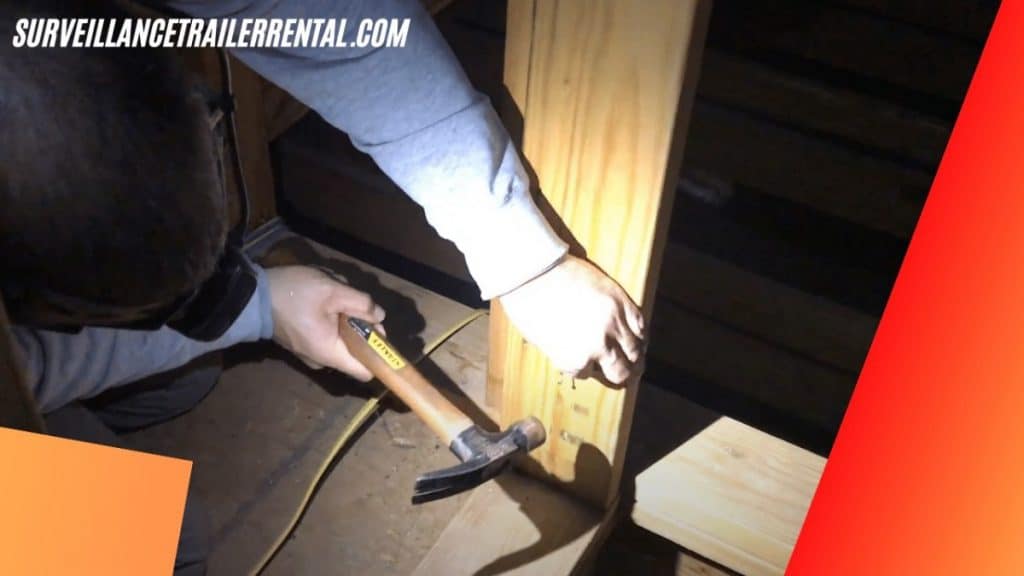
It’s a good idea to have a lifeline such as a friend in the industry, or the tech support number for the manufacturer.
Once the installation is complete, ask them how their experience was. If they reply positively, shoot them a text on the spot with a link to your Google My Business review page and ask them to drop a review.
Calculate Your Net Profit
When you get home, spend some time really unpacking the entire sales cycle.
Look at your profit after expenses. Be really strict about how much time you spent commuting to and from the customer’s location, how many miles you drove, fuel cost, and any other little gotchas you incurred along the way.
Try breaking each job down to an hourly rate. Just take your net profit and divide it by the total amount of time spent on the project. Be honest with yourself! Don’t brush off the 30 minutes it took you to build the quote, for example.
You can use this data over time to better understand whether the current offering is truly worth continuing. For example, if you are installing Vista panels or 4-camera kits and notice your average hourly rate is lower than when you were working as a tech, you might want to change your offer.
Complete at Least 5 More Projects
Now that you’ve completed your first project under your new alarm company, it’s important to generate momentum by leveraging your first customer to land more deals.
Once you complete 5 more projects, you can start thinking about reinvesting your profits into generating more leads and sales. This doesn’t mean you should go out and subscribe to a lead generation service and start putting hundreds of dollars into digital marketing.
At this early stage, you’re gonna have to continue doing most of the work yourself when it comes to generating leads. An example of what you could do with $50 at this stage would be buying a solicitor’s permit from your city, printing an offer on regular paper, and making rounds around some target neighborhoods placing the offer on peoples’ doors.
Stay focused on sales and never stop prospecting!
Pay Yourself and Slowly Scale
At the end of the day, remember why you’re doing this. You want freedom. It’s more than just financial freedom – it’s freedom of movement and freedom from toxic relationships at your 9-5 job.
You need to pay yourself a little from each job in order to reinforce that owning your own alarm company can help you achieve that freedom.
At first, you might only pay yourself $10. You can slowly increase that amount as you close more deals. The things that helped me build momentum were paying myself by taking my wife to dinner with profit from my company and seeing the company’s bank account grow.
Think about how you would use your payroll as you get started and how it would help our family.
Conclusion
You may have noticed that from beginning to end, we let the market pull expenses out of us and we tried to implement a just-in-time approach to paying for anything. It’s easy to get wrapped around things like software tools and advertising early in the life of your business. However, those things can be big expenses that immediately put you in an operating deficit.
It’s easy to subscribe to a fancy CRM tool but it’s HARD to get new customers. That’s exactly why you need to focus on sales first!
Don’t let your brain trick you into focusing on the easy stuff that doesn’t move the needle.
So, always remember that:
- Your business exists because it solves someone’s problem in exchange for money.
- You only have a business as long as it makes more money than it spends.
Fight like hell to only spend money from revenue your business produces. And only spend that money for something you need to make money right now. For example, why would you subscribe to accounting software if you don’t have any customers? Track it on a spreadsheet until it hurts, then pay for software.
Conversely, if you need to order parts for a job and the 50% deposit you require from your customer won’t cover all the hardware, you might have to front some cash to push the deal through and get paid.
Owning your own alarm company comes with a never-ending cycle of problem-solving and adapting to change. If you use this guide as a framework and you can thrive in this cycle, you’ll be rewarded greatly as a business owner!


